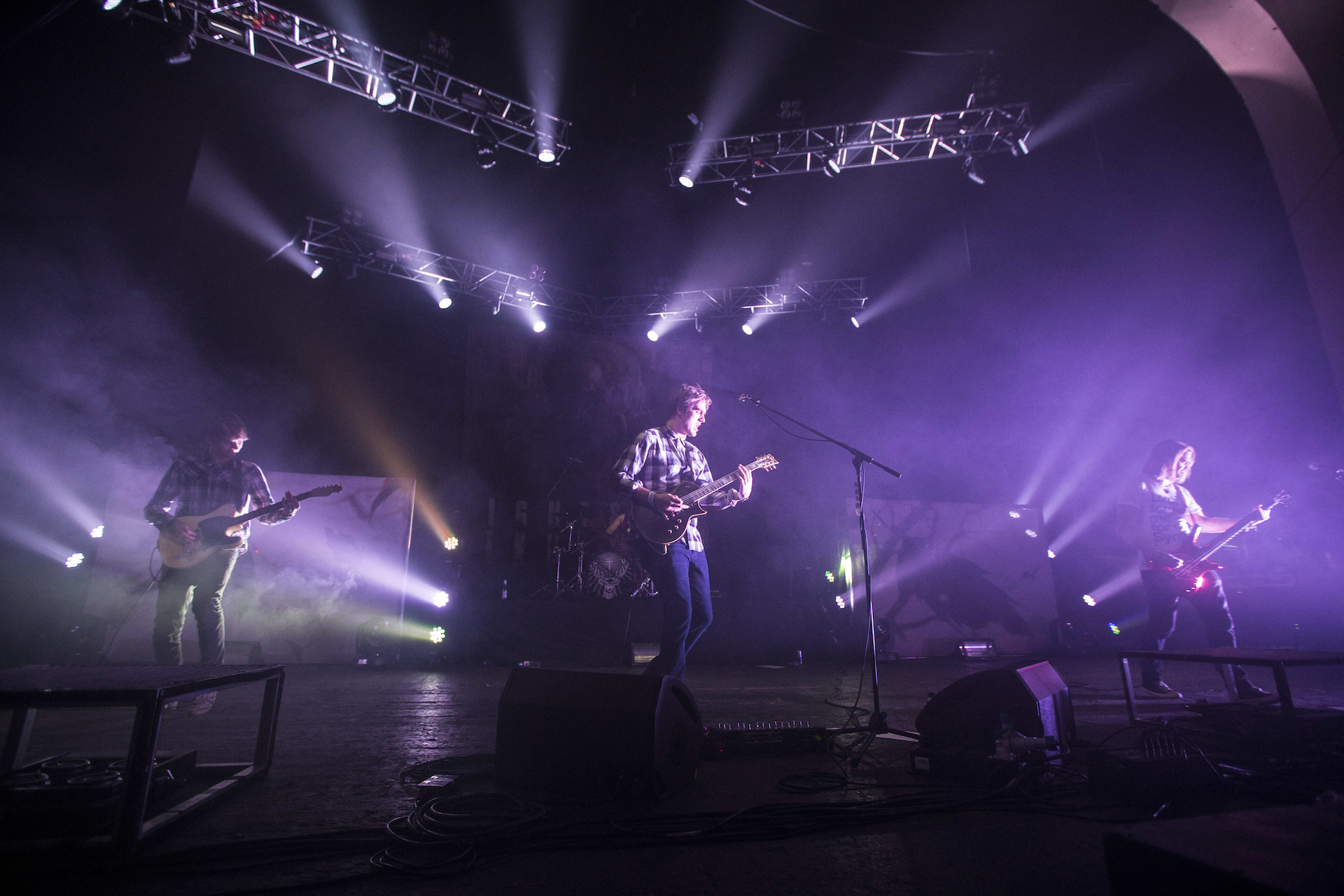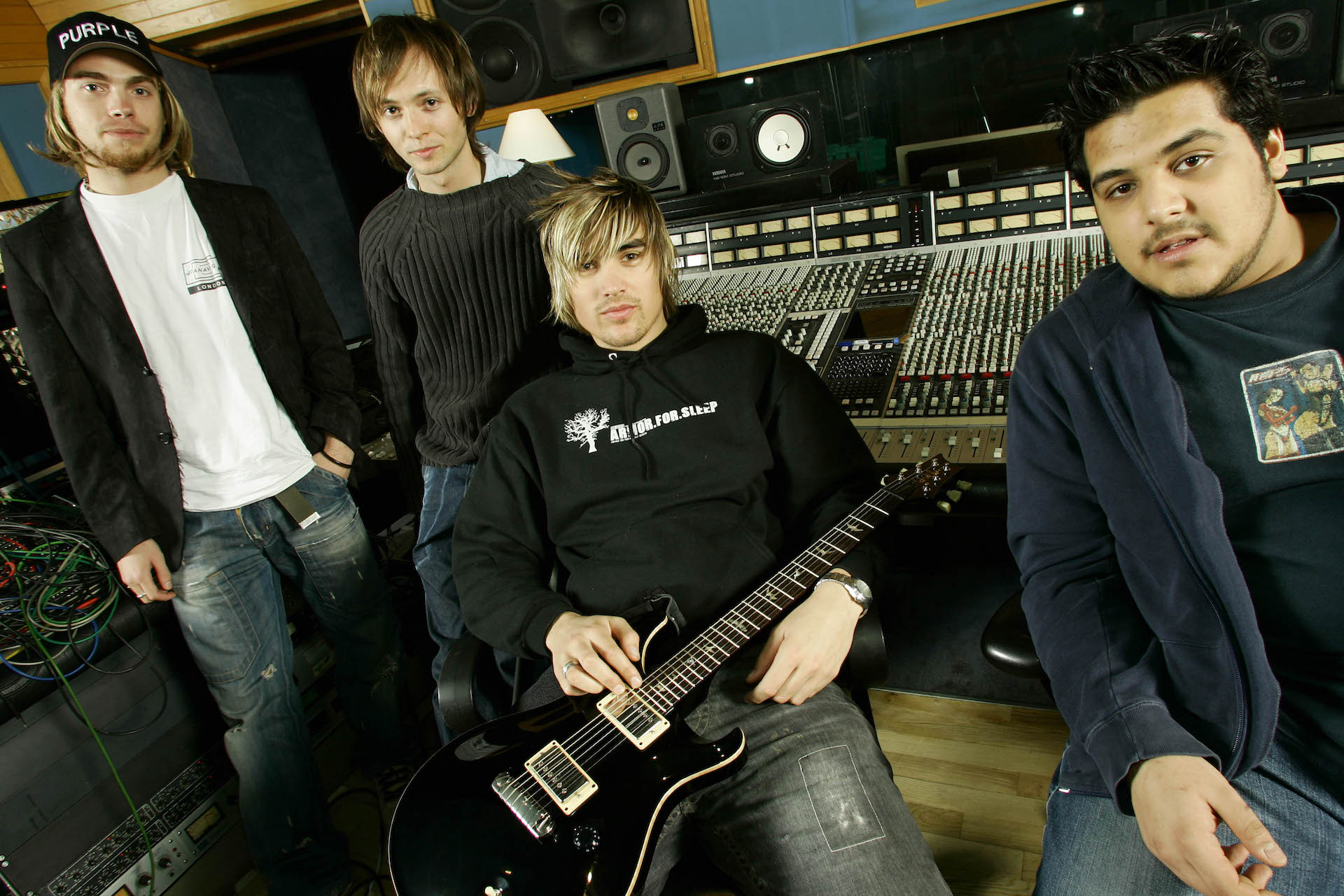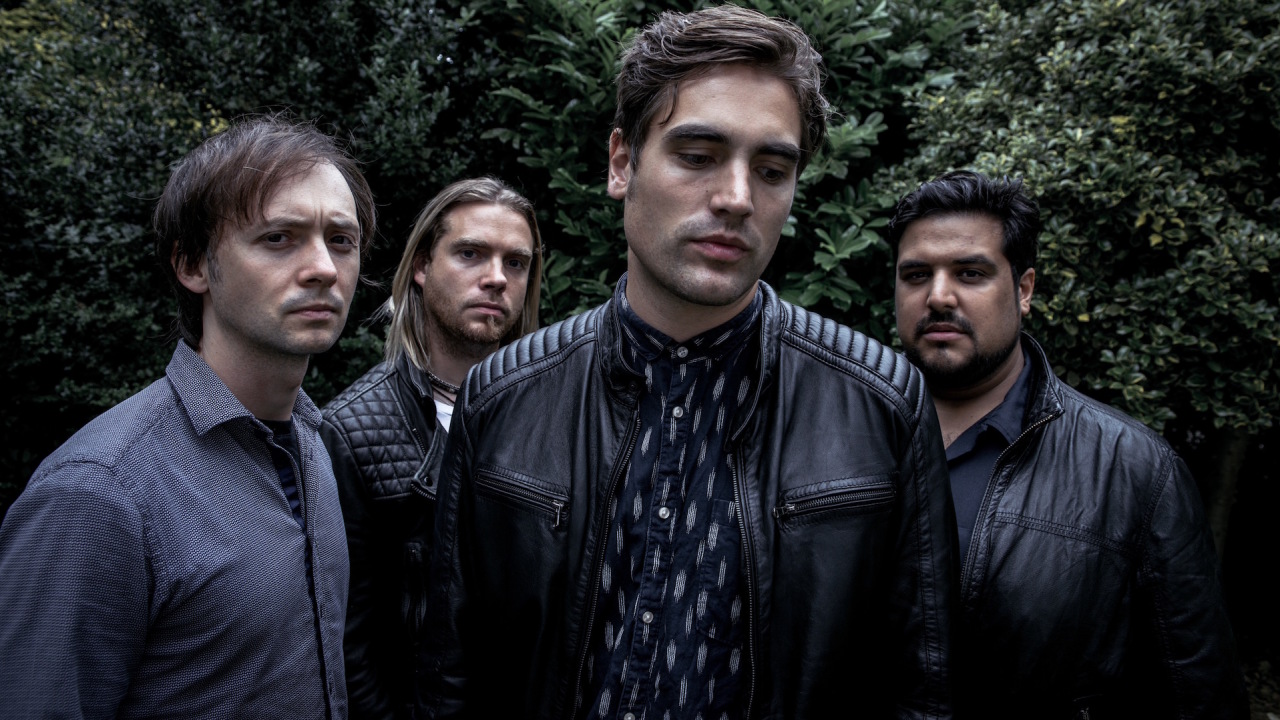To compare and contrast the 2010 edition of Fightstar with its 2015 equivalent is a curious thing. On the surface, of course, it’s the same. It’s made up of the same four people, making similarly textured, heavy sci-fi rock. They look pretty much the same too: Charlie Simpson tall and enthusiastic, guitarist Al Westaway rail thin, bassist Dan Haigh confident and drummer Omar Abidi the anchor at the back. But there’s a difference: these days they’re all smiling.
When Fightstar split up, took a break, went on hiatus, call it what you will, they were ground down. Five years or so on the road had gone from being an adventure to being a job to being a slog. “We were on this relentless trail of touring,” says Simpson. “We went a bit mad. We burned ourselves out.”
The albums were selling OK, but they were not breaking any records either. And anyway, three records for a mid-2000s British post-hardcore band was probably about as much as anyone could expect. That this particular band had not only survived the fact their singer was once a member of Busted, but then also had genuine, credible success too, was more impressive still. So when the decision came to pull the plug in 2010, it wasn’t one taken with too much regret.
“It was a relief,” says Simpson today. “I just physically couldn’t have done another Fightstar record at that point. I wasn’t in the right headspace. I was creatively drained. If we had made a record then, it would not have been up to standard. I wasn’t in the right place to be writing one.”
But it was a funny kind of split. There was no falling out, no rowing or fighting. Instead, all four of them continued to hang out as they always had. Simpson went off and made a couple of folk records and they weren’t half bad. Westaway and Haigh set up a production company, started scoring music for films, and they weren’t half bad at that either. Abidi went into artist and tour management and thrived. Life continued to unfurl and slowly all the anxiety of trying to keep a rock band afloat in an era in which no one buys rock records gradually went away.
“There is so much stress in a band – you are constantly worrying about what’s going on with the release, or the management, or the press,” says Simpson. “So much business stuff creeps in that it becomes all consuming to the point that it’s all you talk about. You can become like business partners rather than mates.”
Without all that, the four members of Fightstar remembered how to be good friends again during the five years the band was apart.
“It wasn’t like we all went our separate ways when Fightstar were apart,” says Simpson. “We were hanging out the whole time anyway as friends. And I quite liked that. I quite liked just being friends again. Because when you’re in a band, all you talk about is the band. I quite liked not having to talk about it the whole time.”
And so with friendships re-established and the stress of the band gone, of course they started up the band again.

It was 10 years since Fightstar first formed at the end of 2014 and so the band decided to mark it. There was no real plan: just play a one-off show and then get back to real life again. But then tickets sold out in 10 minutes flat and fans virtually tore the roof off The Forum when they played. So they did a little tour, just for a laugh, which happened to end at Brixton Academy. And that went well too. In fact it was about the most fun they’ve had in ages. “It’s just been the best year,” says Simpson. “We really didn’t have a plan, we just rolled along.”
They realised the old magic had not gone. “I remember screaming again and thinking, ‘I haven’t done this in a while’,” says Simpson. “It took me a few moments to remember how to do it.”
And so, swelled by the reaction their lives shows were getting, they decided to lay a few new songs down to see how it went. But this time it was different: they were not making an album because they had to. Instead, they were making it because they wanted to. If it was no good, they would not put it out and this time they had no label breathing down their necks and no tour to tee up. It was simply a bit of fun.

“We got back to being mates again during the break and so making this album was as close as we’ve ever come to the mood we had when we made our first EP,” says Simpson. “I specifically didn’t want to just put something out for the sake of it and when we started writing in March, we were just seeing how it went, assessing it song by song. It flowed very quickly. Because we haven’t written an album in five years, there was a lot of pent up creativity that flowed out. It was nice. We weren’t thinking, ‘Oh, we’ve got to write a single for radio’ or any of the normal things that go along with making a record. We were very free.”
It’s how they see Fightstar continuing: the odd record every few years when all four of them have the time and energy to do it (and are not embroiled in rumours of a Busted reformation either, which Simpson is not talking about). There will be touring treadmill again – just a few shows to support each release – and they will do it as friends.
“Fightstar is almost a passion project for us now – it’s something that we’ll come together and do when we have the time to do it,” says Simpson. “That’s actually really lovely, because it means we’re not under pressure. It means we’re not doing it for anyone else – we’re doing it for us.”
Behind The Devil’s Back is out now. The band are currently on tour. For more details, see their official website.

